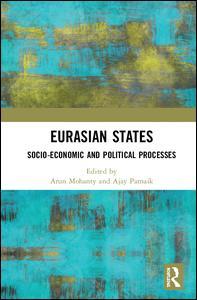Eurasian States Socio-Economic and Political Processes
Coordonnateurs : Mohanty Arun, Patnaik Ajay

Eurasia, a region which essentially consists of the former Soviet Republics, has always drawn international attention because of its geographical location, strategic significance and the presence of huge amounts of natural resources. This region has become an arena of sharp competition for influence between all the major powers in the world?the US, the European Union, China, Japan, India, Turkey, Iran, besides many others. The Eurasian states are about to complete 25 years of their independent existence and tumultuous transition. Each of the Eurasian states has chosen its own strategy for development as well as its foreign policy priorities. While the democratic reforms in these countries have faced enormous problems, the economic transition from a state-controlled economy to a market one has been painful. There is no single model that can characterise the entire region in terms of its political and socio-economic transformation. The prevalence of ethnic tensions combined with frozen conflicts between many of the Commonwealth of Independent States (CIS) countries has compounded the situation. The competing integration processes sponsored by the major powers have further exacerbated tensions in the former Soviet space.
While Russia, the major state in the region, is India?s special and privileged strategic partner, Central Asia falls in its extended neighbourhood, thus highlighting its significance in terms of India?s long-term interests. While the Western analyses of the developments in the region remain largely subjective and biased, India needs to develop its own perspective in order to best serve its interests, as developments in that part of the globe can have immense implications for India.
The volume discusses in depth the political and economic developments as well as issues related to stability, security and integration of the region. Scholars from many foreign countries, including Russia and other CIS countries, as well as Indian experts from different universities have analysed issues such as inter-state relations, role of external players, issues of socio-cultural developments as well as India?s bilateral relations with the member states of the CIS.
Please note: Taylor & Francis does not sell or distribute the Hardback in India, Pakistan, Nepal, Bhutan, Bangladesh and Sri Lanka.
Date de parution : 01-2021
15.2x22.9 cm
Disponible chez l'éditeur (délai d'approvisionnement : 13 jours).
Prix indicatif 154,17 €
Ajouter au panier


